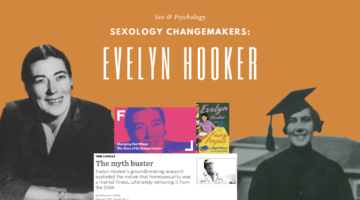What Role Do Investments Play in Gay Relationships?
January 27, 2012 by Justin Lehmiller
There is a large amount of research showing that commitment to a romantic partner depends upon how many investments have been put into that relationship [1]. Investments is very broad term that refers to any resources attached to a relationship that would be lost if the couple were to break up. Investments can be tangible (i.e., material things, such as joint bank accounts, shared possessions, pets, etc.) or intangible (i.e., things without material being, such as time and effort, plans for the future, emotional disclosure, etc.). Although research shows that both tangible and intangible investments are key factors driving commitment in heterosexual relationships [2], research on same-sex couples suggests that not all investments are equally important [3,4].
Specifically, intangible investments are a significant predictor of commitment among gay couples, just as they are for heterosexual couples. That is, emotional investments and personal sacrifices may help to maintain any type of romantic relationship, regardless of the partners’ sexual orientation. In contrast, while tangible investments significantly predict relationship commitment for heterosexuals, they do not do so for gays and lesbians. In other words, material resources appear to play less of a role in keeping same-sex couples together.
Why are tangible investments tied more strongly to commitment in heterosexual couples compared to same-sex couples? One possibility is that because same-sex couples typically lack formal legal recognition for their relationships, money and possessions are less likely to become joint property for them (i.e., the couple members may keep separate bank accounts and financial investments, thereby leading them to make mostly individual purchases). Consequently, when a gay relationship ends, material possessions can often be clearly divided into “yours” and “mine.” However, for heterosexual married couples, everything they have is legally considered communal property. As a result, when a heterosexual marriage ends, determining who owns what can get very, very complicated. Thus, material resources may be a more important consideration in heterosexual married relationships because marriage directly ties those resources to the relationship.
Of course, other explanations are possible. However, as same-sex marriage and civil unions become more widespread, it will be interesting to see whether tangible investments take on enhanced meaning in gay and lesbian couples.
Want to learn more about Sex and Psychology ? Click here for previous articles or follow the blog on Facebook (facebook.com/psychologyofsex), Twitter (@JustinLehmiller), or Reddit (reddit.com/r/psychologyofsex) to receive updates. You can also follow Dr. Lehmiller on YouTube and Instagram.
[1] Le, B., & Agnew, C. R. (2003). Commitment and its theorized determinants: A meta-analysis of the Investment Model. Personal Relationships, 10, 37-57.
[2] Goodfriend, W., & Agnew, C. R. (2008). Sunken costs and desired plans: Examining different types of investments in close relationships. Personality and Social Psychology Bulletin, 34, 1639-1652.
[3] Lehmiller, J. J. (2010). Differences in relationship investments between gay and heterosexual men. Personal Relationships, 17, 81-96.
[4] Lehmiller, J. J. (2012, January). Predicting commitment in lesbian relationships: Which investments matter? Poster presented at the Society for Personality and Social Psychology Conference, San Diego, CA.
Image Source: Wikimedia Commons

Dr. Justin Lehmiller
Founder & Owner of Sex and PsychologyDr. Justin Lehmiller is a social psychologist and Research Fellow at The Kinsey Institute. He runs the Sex and Psychology blog and podcast and is author of the popular book Tell Me What You Want. Dr. Lehmiller is an award-winning educator, and a prolific researcher who has published more than 50 academic works.
Read full bio >


